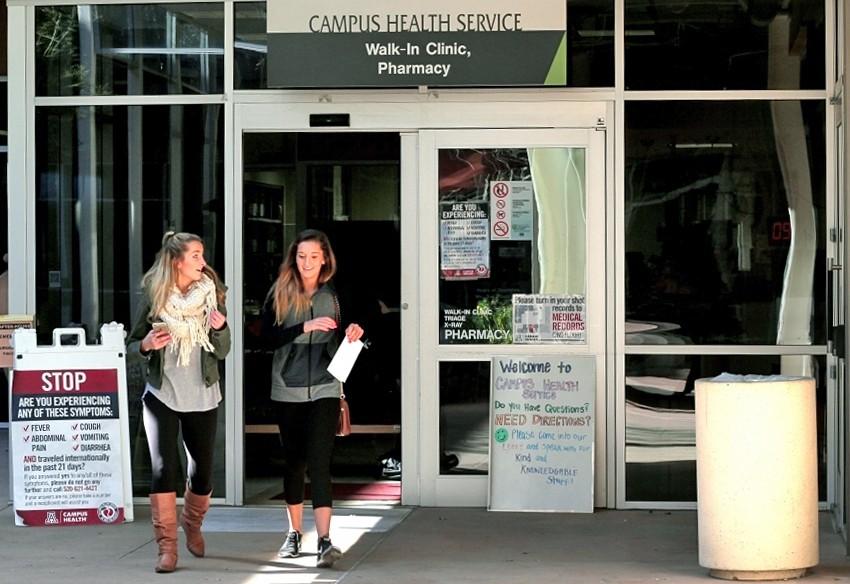Campus Health Services provides health insurance options that keep getting more affordable for students. However, it’s important to note that during finals week of this semester, another problem arises as the weather changes: students often get sick.
During the semester, students resort to visiting UA Health Care Services on campus, and their services range from physical therapy to counseling and psychological services.
According to the Campus Health website, students can schedule a consultation for general medical information for $20 with a physician at Campus Health. Services can even include insertion or removal of an IUD for $40 per visit, without including the cost of an IUD.
Students can get these and more services covered with a $1,875 annual premium provided by Campus Health known as Campus Care. This premium, provided by Aetna Co., has become more affordable over the years.
RELATED: Is it normal to feel this stressed?
Last school year, the premium was $2,065, and the year before that it was at $2,308.
“Campus Health Services has partnered with Aetna and it is offered as a health insurance to students in the three major Arizona institutions (UA, NAU, ASU),” said Billing and Claims Supervisor, Maria Sanchez.
“Students, when they go into their UAccess account, they have the option to select insurance and at that point they can opt in to be in that insurance plan, this is something that is paid for per semester.”
Aetna is a private health care company that sells traditional and consumer directed healthcare insurance plans, such as medical, pharmaceutical, dental, behavioral health, long-term care, and disability plans.
This option is offered for students who have no private medical insurance and grants full coverage for their health services.
In the past, United Healthcare and Blue Cross Blue Shield were health insurance carriers for the three Arizona institutions, but Aetna has been the alternative through the last several Request for Proposal cycles.
“At least every 5-years, a Request for Proposal process is conducted on behalf of the Arizona Board of Regents to identify the health insurance carrier that will administer the ABOR Student Health Insurance Plan,” said Campus Health Interim Executive Director, Kris Kreutz.
According to Kreutz the three Arizona universities began providing student health insurance with Aetna once they purchased Chickering Student Health about 10 years ago.
“The reason Aetna Student Health has been selected through each RFP cycle, including the most recent last academic year, has to do with the expertise they bring as a major health insurance carrier along with a willingness to partner with the ABOR universities, with student participation, to identify the best health coverage for the most reasonable premium level,” Kreutz said.
According to Kreutz, UA Campus Health Service does have participating provider agreements with a handful of health insurance carriers for UA students who may have coverage through their parents, partners or employment.
All three Arizona universities have similar arrangements that allow most students to use their health insurance for services provided through the campus health, unless you have Medicaid or Arizona Health Care Cost Containment System.
RELATED: UA Food Day Fair brings health and wellness to campus
“The UA Campus Health Service has not been successful in our ability to limit the AHCCCS population that we might serve to just UA students,” Kreutz said. “This requirement to see AHCCCS patients, not just UA students, along with the need to participate in Medicare since many AHCCCS recipients also have Medicare coverage is not achievable under the present circumstances or contractual offerings.”
According to Kreutz, the prospect of participating with Medicare also brings additional administrative responsibilities, compliance, reporting, contracting, audits, etc., which result in additional and significant expense.
“The Annual Renewal process is underway with the ABOR Student Health Insurance Plan and it is hoped that this will be favorably concluded by the middle of February 2018 for the next Policy Year that begins August 16, 2018,” Kreutz said.
Follow Victor Garcia on Twitter









